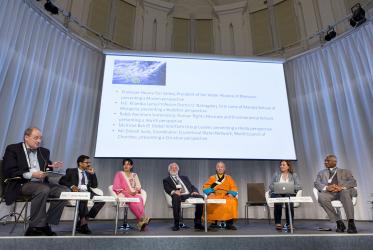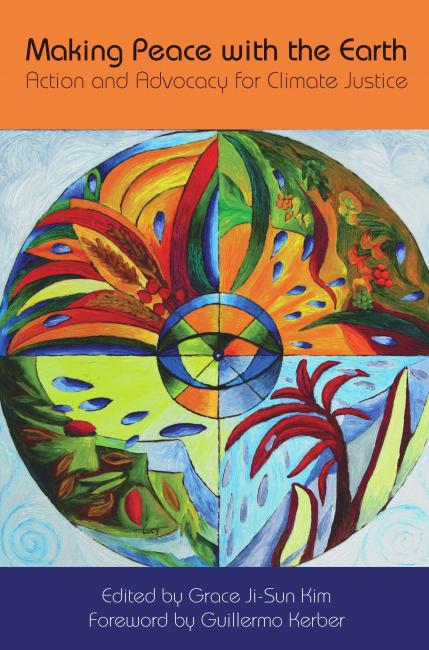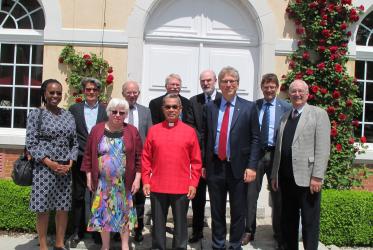Displaying 161 - 180 of 287
Plans for 2017 decided by WCC Executive Committee
01 December 2016
In Syria and Iraq, minorities must come out of the darkness
28 November 2016
Grand Imam calls for collaboration against violence and poverty
06 October 2016
Tveit offers input at religion and development meeting
03 October 2016
WCC holds discussion on religious freedom literacy and diplomacy
23 September 2016
In Ghana, women bring open minds, honest words
05 July 2016
Panel discussion fields ideas on European identity
26 April 2016













